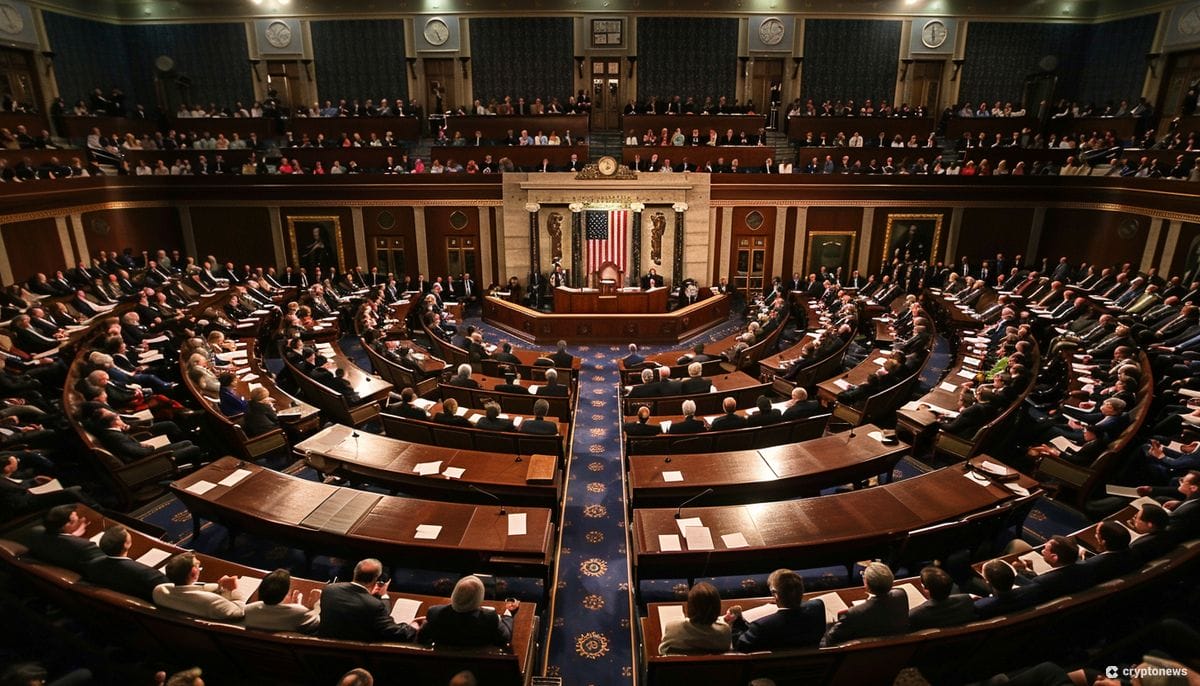The US House on Thursday approved a bill that prohibits the Federal Reserve from issuing a digital dollar, or central bank digital currency (CBDC), without explicit authorization from Congress.
This legislation, known as the CBDC Anti-Surveillance State Act (HR 5403), passed with a vote of 216 to 192. Republicans voiced worries that a US CBDC could be used for government control over citizens’ finances.
The Fed itself hasn’t yet come out with a solid proposal to launch a digital dollar. But, the House vote reflects ongoing concerns among Republicans – including former President Trump – about potential government overreach with such a system.
House Majority Whip Tom Emmer (R-Minn.), who introduced the legislation, argued a digital dollar could be a “surveillance tool” for the government, giving it the power to track transactions and potentially restrict activity they deem politically undesirable.
His stance echoes Trump’s strong opposition to a CBDC, as the current Presidential candidate has vowed to block its creation if re-elected.
BREAKING: The House of Representatives just passed our CBDC Anti-Surveillance State Act.
— Tom Emmer (@GOPMajorityWhip) May 23, 2024
“Such a currency would give the federal government absolute control over your money. They could take your money, and you wouldn’t even know it was gone,” Trump has said.
Earlier this week, the American Bankers Association (ABA) urged House leaders to back the bill.
House Delivers for Crypto, Denies Fed Power Over Digital Dollar
Thursday’s vote marks a significant difference from the prior floor vote. On Wednesday, 71 Democrats and 208 Republicans passed the Financial Innovation and Technology for the 21st Century Act (FIT21).
This bill focuses on a fresh crypto market structure and grants the US Commodity Futures Trading Commission more authority over digital assets in spot markets. It also outlines the Securities and Exchange Commission’s approach towards the sector.
Industry Rejoices, But Can FIT21 Pass Biden’s Scrutiny?
Wednesday’s vote marks a landmark moment for the crypto industry. It is the first time a bill solely focused on crypto market regulation passed the House. But even though the crypto industry celebrates the FIT21 vote, challenges remain.
Alan Mittleman, COO of Secure Digital Markets, told Cryptonews that the bill needs a companion version for the Senate. This new version will need committee revisions and face potential opposition from vocal crypto critics like Senator Elizabeth Warren. In short, the bill’s journey to becoming law is far from over.
According to Mittleman, President Joe Biden seems worried that there aren’t enough consumer protections in FIT21. “He hasn’t threatened a veto yet. But that suggests more work may be required on the bill to go through,” he added.
Read the full article here


